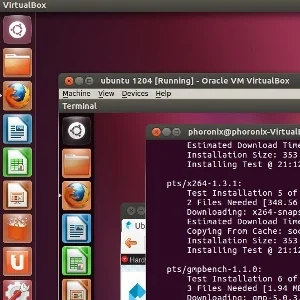Rust-Based Cloud-Hypervisor 19.0 Released With Improved Live Migration, Faster Boot Time

Cloud-Hypervisor 19.0 continues to focus on only supporting 64-bit software, providing a minimal attack surface and other security improvements in part by leveraging Rust, and other modern-focused design principals.
With Cloud-Hypervisor 19.0 the boot times for guests are even quicker thanks to improvements to the hypervisor's PCI handling code. There are also live migration improvements with now handling live migration while using virtio-mem and virtio-balloon devices, ACPI hot-plugged memory previously not being restored after migration, and live migration with large blocks of memory having been buggy.
The new Cloud-Hypervisor release also has improved PTY handling for the serial and virtio-console interfaces, improved support for TDX, and running on AArch64 adds VirtIO-IOMMU support.
Downloads and more details on Cloud-Hypervisor 19.0 via GitHub.
1 Comment

